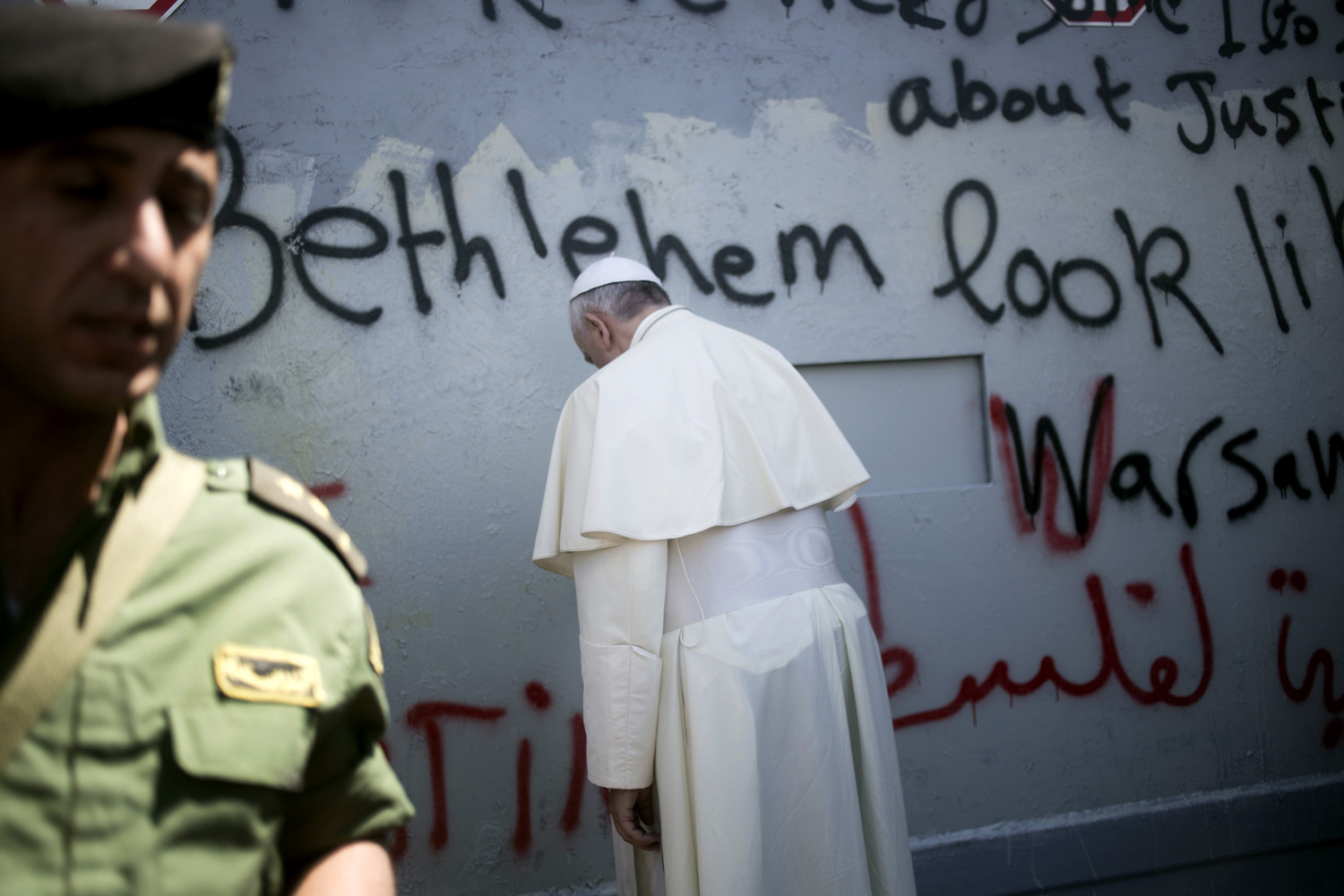
Pope Francis has garnered a great deal of popularity worldwide for his bold stands on behalf of social justice and his simple gestures of humility. His papacy seems to be transforming the global image of the Catholic Church. Still, it is essential to keep things in perspective. The latest article that seems to overhype this pope who needs no exaggeration is Christopher Hale’s “Why Pope Francis May Be the Best Politician in the World.”
Hale presents a number of arguments that I find appealing. He is right that religious figures, and religion, have played a major role in political movements from the United States to the former Soviet Union. His praise of the pope for engaging the heads of Israel and Palestine and calling for them to come to the Vatican to engage in dialogue has the potential to push the peace negotiations in the right direction, and it does take pressure off of John Kerry and President Obama knowing that peace in the Middle East is not on their shoulders alone.
However, he seems to be overly optimistic about possibility of an imminent resolution to the Israeli-Palestinian conflict. The meeting between Israeli President Shimon Peres and Palestinian President Mahmoud Abbas is unlikely to produce real results for a variety of reasons. First, Peres is going to be leaving office this summer and the proposed meeting will take place right before he is out of the picture. Second, Peres is the President of Israel, the head of state. He is not the head of government and he has no power to create or sign any treaty with Abbas. Third, according to an article published in Haaretz in early May, Peres had an agreement in place that Netanyahu would not sign off on three years ago; Netanyahu has since been highly critical of potential negotiations with Abbas.
The meeting is far more likely to be merely symbolic. But that does not mean it is meaningless. Symbolic acts can lead to real progress. We should not be so quick to dismiss the potential of symbolic acts and the effect that symbolism can have on the long-term political conflict in the Middle East. Perhaps this symbolic meeting where goodwill is shown will improve the working relationship between the two governments by fostering greater understanding; perhaps this meeting will allow Abbas to go back to Palestine to claim some sort of moral victory based upon what is said in the meeting and this moral victory reinvigorates the peace process down the line. Pope Francis actions might bring a more subtle form of success, even if this initiative is unlikely to bring the headline -grabbing results that some are rashly predicting.
Hale’s comments on Syria are also highly problematic. While there has been some progress with regards to chemical weapons, the situation for the Syrians has not improved. Since the pope’s push against American intervention, around 60,000 Syrians have died. The killings have not ended, and they do not look like they will be ending in the near future. Chlorine bombings are the latest technique Syrian dictator Bashar Assad has used in his campaign of mass murder against his own people.
Pope Francis condemnation of this brutal civil war is powerful, but prayer alone will not end this conflict. Sometimes more than prayer is needed; sometimes the use of force is justified. While the U.S. has avoided entering another war, it has also allowed a murderous dictator to continue unobstructed in a brutal campaign of mass atrocities, setting a terrible precedent. Obviously there was no clear cut path to a just peace in Syria, so I do not criticize those who believe intervening would have been unwise, but to claim the current policy is a success is simply wrong—intellectually and morally.
On his recent trip, while addressing Holocaust and terrorism survivors, Francis said: “Never again, Lord, never again! Here we are, Lord, shamed by what man — created in your own image and likeness — was capable of doing.” If Pope Francis is serious about “never again,” he needs to make it clear that this applies to Syria, where hundreds of children are slaughtered each month. He needs his Secretary of State and others to stop treating the horror show in Syria like it is a success.
Hale is absolutely right that the pope is a major player in international politics, and when the pope speaks on international matters the world rightly listens. What the pope says matters, it has serious repercussions, and it’s about time that the media give the Papacy its due as a major geopolitical actor. But that is why it is also necessary to be realistic about what the pope can accomplish and to take a hard, and sometimes critical, look at the impact the pope is having on international politics.
Daniel R. Petri is a Ph.D Candidate in Politics at the Catholic University of America and a guest writer for Millennial.
More Must-Reads from TIME
- Donald Trump Is TIME's 2024 Person of the Year
- Why We Chose Trump as Person of the Year
- Is Intermittent Fasting Good or Bad for You?
- The 100 Must-Read Books of 2024
- The 20 Best Christmas TV Episodes
- Column: If Optimism Feels Ridiculous Now, Try Hope
- The Future of Climate Action Is Trade Policy
- Merle Bombardieri Is Helping People Make the Baby Decision
Contact us at letters@time.com